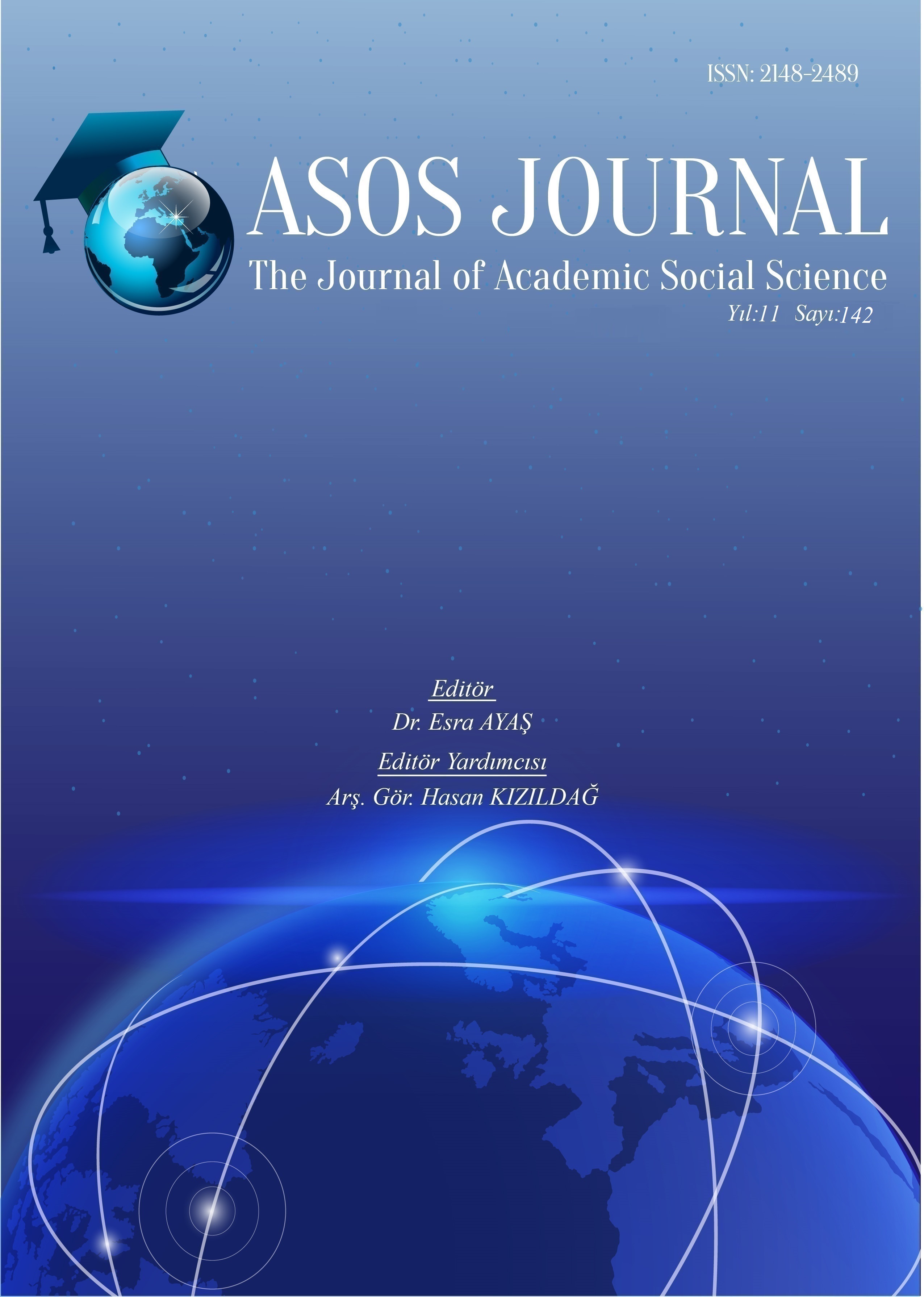Author :
Abstract
Toplumsal, sosyal, kültürel ve teknolojik alanlardaki değişimler, eğitim kurumları ve bu kurumlarda çalışan öğretmenleri eğitimsel ve öğretimsel süreçler bağlamında alışılagelmişin dışında hareket etmeye zorlamaktadır. Özellikle teknolojinin bireylerin hayatındaki yerinin hızla değişimi eğitimdeki dijital dönüşümü hızlandırmanın yanı sıra bu süreçlerin daha motive edici hale gelmesine de katkı sağlamıştır. Bu değişime bağlı olarak, eğitim ortamlarının yeniden gözden geçirilmesi, öğrencilere neyin, ne şekilde öğretilmesi gerektiği konularının tartışıldığı görülmektedir. Bu bağlamda bu çalışmanın amacı, eğitimde dijital dönüşümün ilk hedefi olan öğretici ile öğrenen arasında yeni ve deneyimsel bir köprünün oluşturulması, zamana ve mekana bağlı olmaksızın öğretme ve öğrenmenin sağlanması için eğitimde yaşanılan dijital dönüşüme paralel olarak eğitim alanında kullanılan dijital ağlar hakkında öğretmen görüşlerini ortaya çıkarmaktır. Araştırma, nitel araştırma yöntemlerinden durum çalışması deseninde yürütülmüş bir çalışmadır. Araştırmanın çalışma grubu, Sakarya ilindeki farklı eğitim bölgelerinde görev yapan 20 öğretmenden oluşmaktadır. Araştırma verileri yarı yapılandırılmış görüşme formu ile toplanmış ve veriler içerik analizi yöntemi ile çözümlenmiştir. Araştırma bulgularından elde edilen sonuçlara göre eğitim alanında birçok dijital uygulamalar ve programlardan yararlanıldığını görülmektedir. Özellikle online sınav hazırlama, ders vidoları izleme, not paylaşımında bulunma, sunu hazırlama ve mesleki eğitimler gibi farklı konularda dijital platform kullanımın tercih edildiği sonucuna ulaşılmıştır. Ayrıca eğitimsel ve öğretimsel süreçlerde dijital ağları kullanılmanın avantaj ve dezavantajları olabildiği bulgulanmıştır. Katılımcılar, MEB tabanlı bilişim ağlarının çoğaltılması, öğretmenlere yönelik eğitimler verilmesi, eğitimsel ağlara erişim konusunda eşitlik sağlanması, donanımsal ve teknik destek sağlanması, teknoloji kullanıma yönelik yöneticilerin desteği olması, kullanılan ağlara yönelik meslektaş paylaşımlarını teşvik edilmesi, öğretmen ve öğrenciler için bilişim ağlarının ücretsiz hale getirilmesi yönünde dijital ağ kullanımın yaygınlaştırılmasına yönelik önerilerde bulunmuşlardır.
Keywords
Abstract
The changes in social, cultural, and technological fields are pushing educational institutions and teachers to move beyond conventional methods in the context of educational and instructional processes. Especially the rapid change in the role of technology in individuals' lives has accelerated the digital transformation in education and contributed to making these processes more motivating. As a result of this change, it is observed that educational environments are being reviewed, and discussions are being held on what and how to teach students. In this context, the aim of this study is to reveal teachers' views on the digital networks used in education, parallel to the digital transformation experienced in education, in order to create a new and experiential bridge between the instructor and the learner, and to provide teaching and learning regardless of time and place. The research is a case study conducted using qualitative research methods. The study group of the research consists of 20 teachers working in different educational regions in Sakarya province. The research data were collected with a semi-structured interview form and analyzed using content analysis method. According to the findings obtained from the research, it is observed that many digital applications and programs are used in the field of education. It was concluded that digital platforms are preferred especially in different subjects such as online exam preparation, watching lesson videos, sharing notes, preparing presentations, and professional development. In addition, advantages and disadvantages of using digital networks in educational and instructional processes were identified. The participants made suggestions for the widespread use of digital networks, such as duplicating MEB-based computer networks, providing training for teachers, ensuring equality in accessing educational networks, providing hardware and technical support, having support from administrators regarding technology use, promoting peer sharing regarding the networks used, and making computer networks free for teachers and students.
